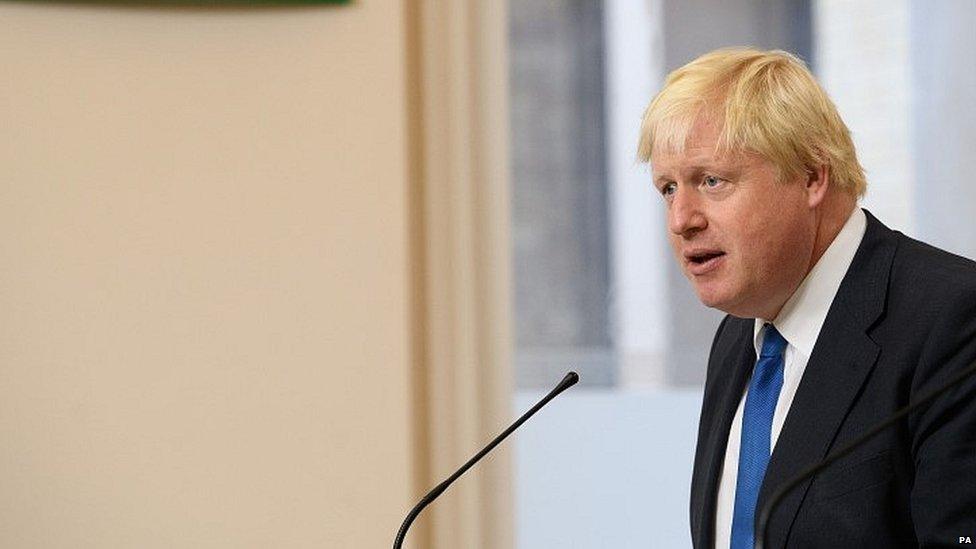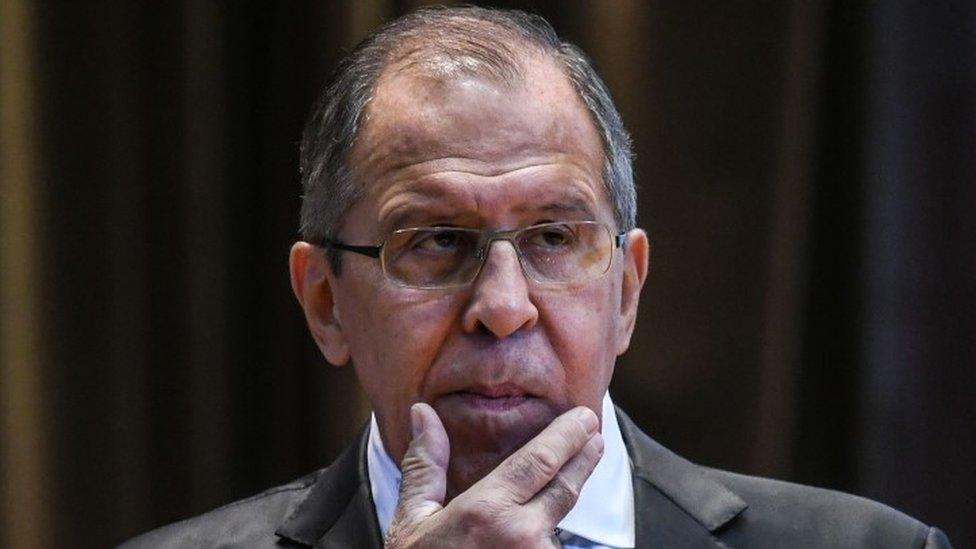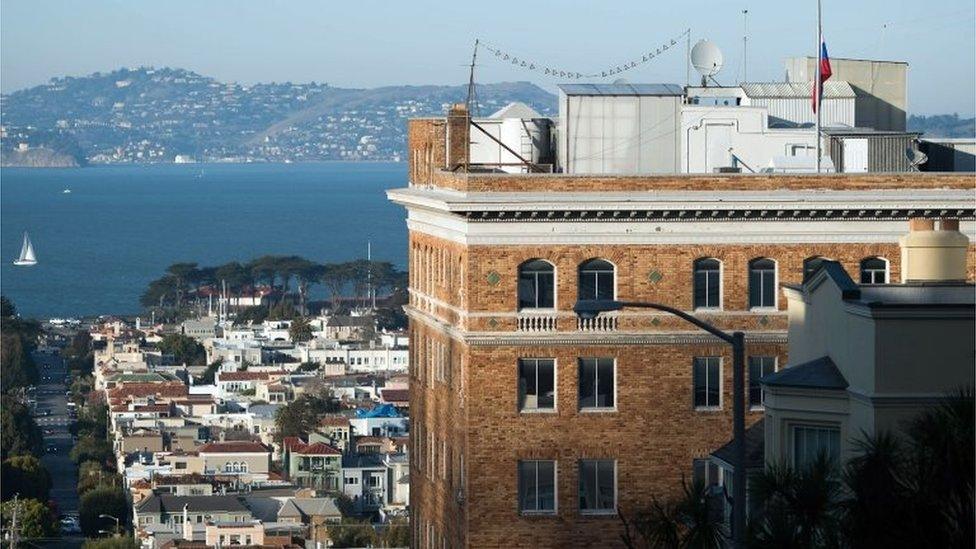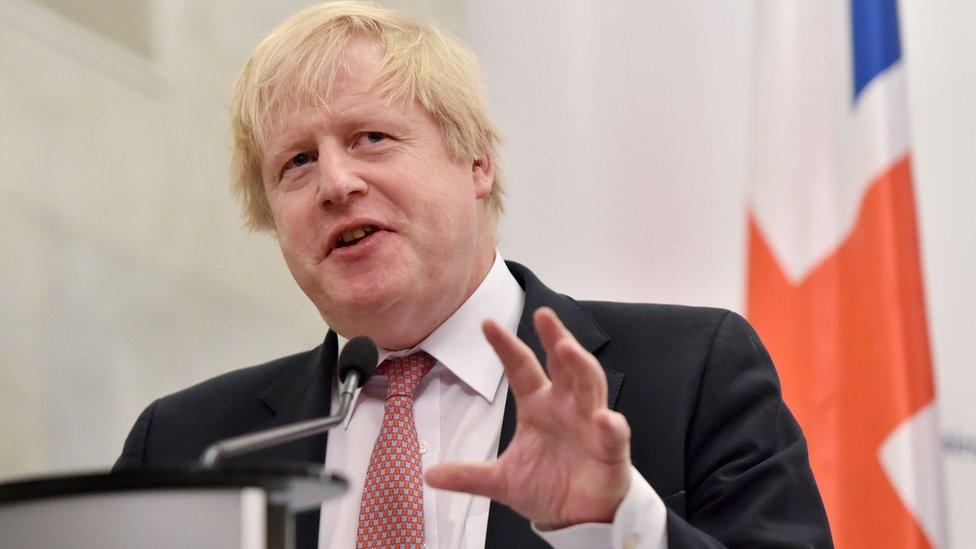Boris Johnson to visit Moscow as part of 'robust' dialogue'
- Published

Boris Johnson is to visit Moscow later this year as part of efforts to build a more constructive dialogue with Russia on global security issues.
The foreign secretary has been invited by his counterpart Sergei Lavrov.
Items on the agenda are likely to include North Korea, Iran and security for next year's football World Cup.
The Foreign Office said the UK had "deep differences" with Russia but the visit was part of a policy of "sustained and robust engagement".
Mr Johnson was due to visit Moscow in April, but the trip was cancelled following a deadly chemical weapons attack on a rebel-held town in Syria.
Face-to-face diplomacy
The atrocity was blamed on President Assad's regime, which is backed by the Russians, although the Syrian government has denied using nerve gas.
The attack prompted a military response from the US, which bombed a Syrian air base it suspected of storing chemical weapons.
The UK's relations with Russia have been strained for several years but the two foreign ministers have met on several occasions this year, most recently at the UN General Assembly in September.
The Foreign Office said the bilateral visit, a date for which has not been set, did not mean a return "to business as usual" with Russia following its annexation of Crimea, which prompted EU sanctions, its wider actions in Ukraine and its continued support for the Assad regime.

Boris Johnson will meet his Russian counterpart Sergei Lavrov
But it said it was vital in the UK's national interest to keep "channels of communication" open.
"Russia is a fellow permanent member of the UN Security Council and there are global security issues we need to discuss from Iran to North Korea," Mr Johnson said.
"Of course we will continue to challenge Russia's approach where we disagree, whether that is Russia's actions in Syria or its aggression towards Ukraine. My visit will provide an opportunity to talk about these issues and more, face-to-face.
"Our relationship with Russia is not straightforward. That is all the more reason to be talking to Russia - to manage our differences and cooperate where possible for the security of both our nations and the international community."
As well as government meetings, the foreign secretary said he would also speak to figures from Russian society and the "next generation".
- Published2 September 2017

- Published8 April 2017
